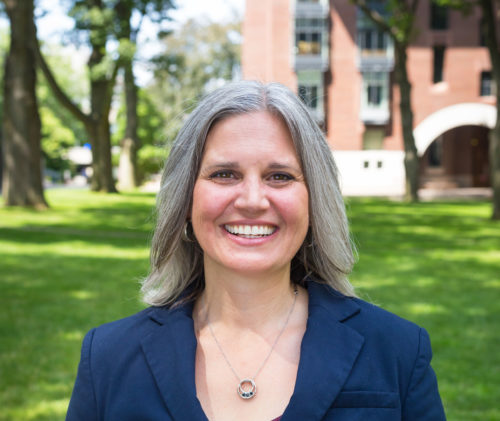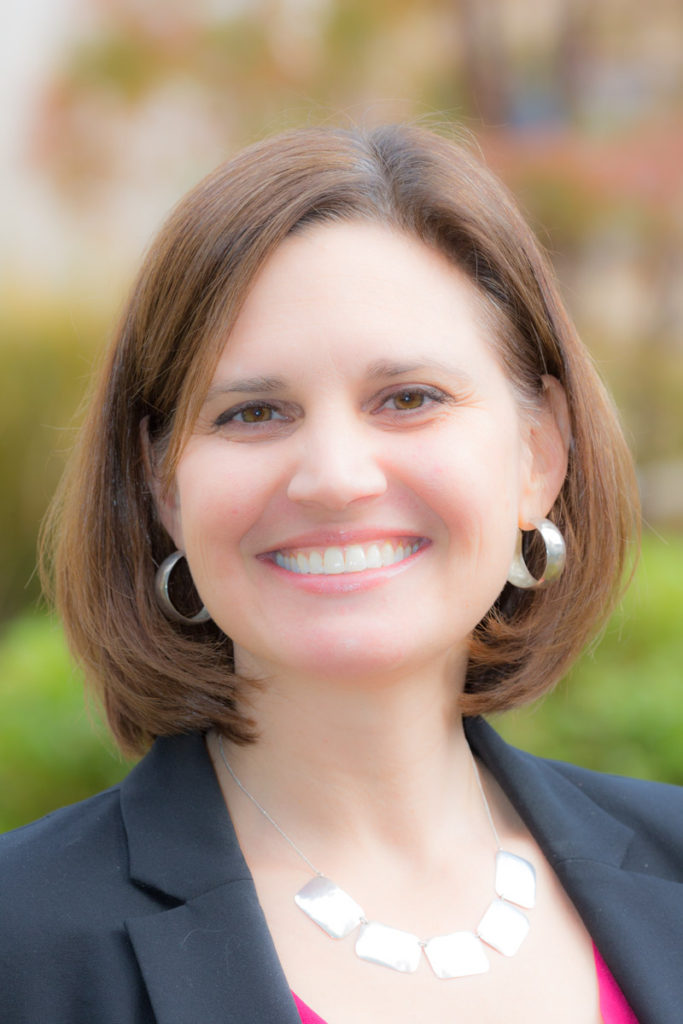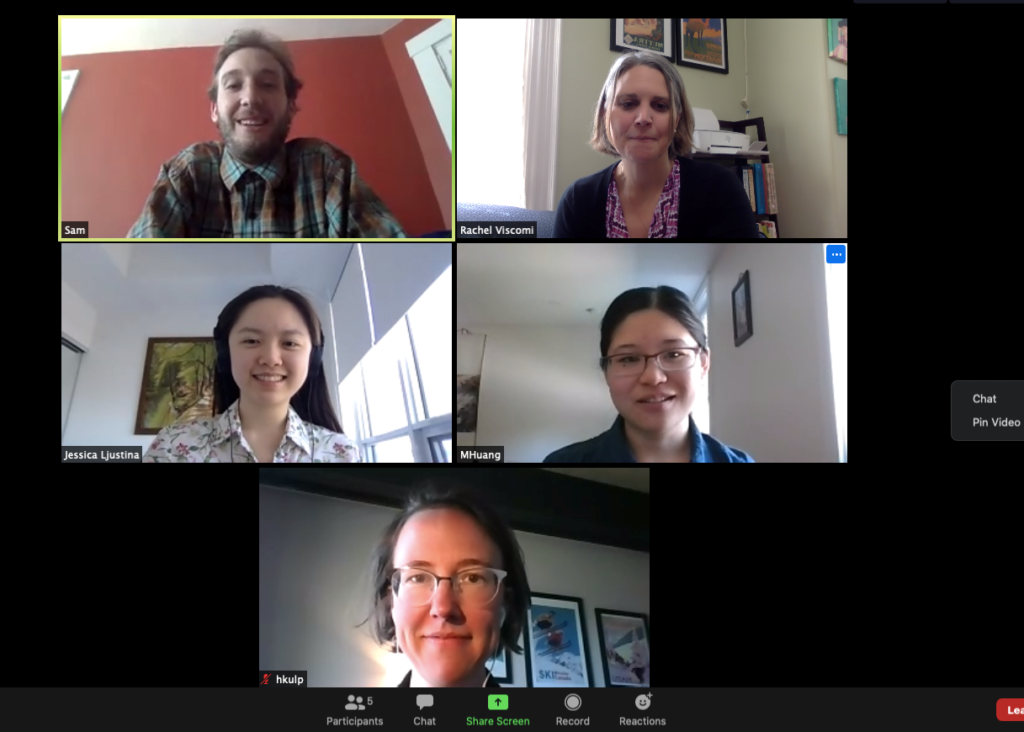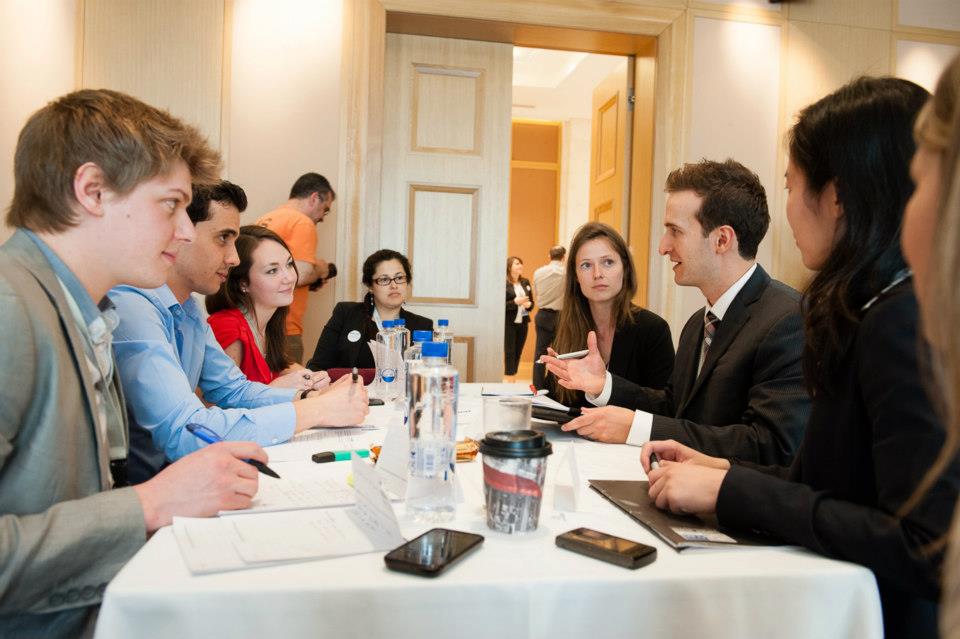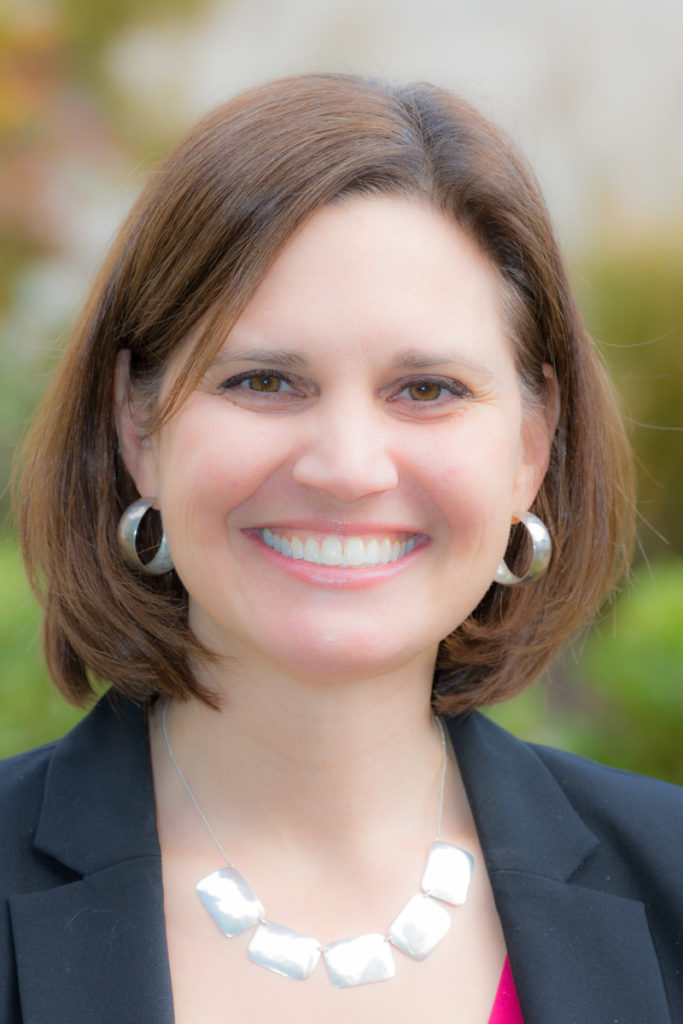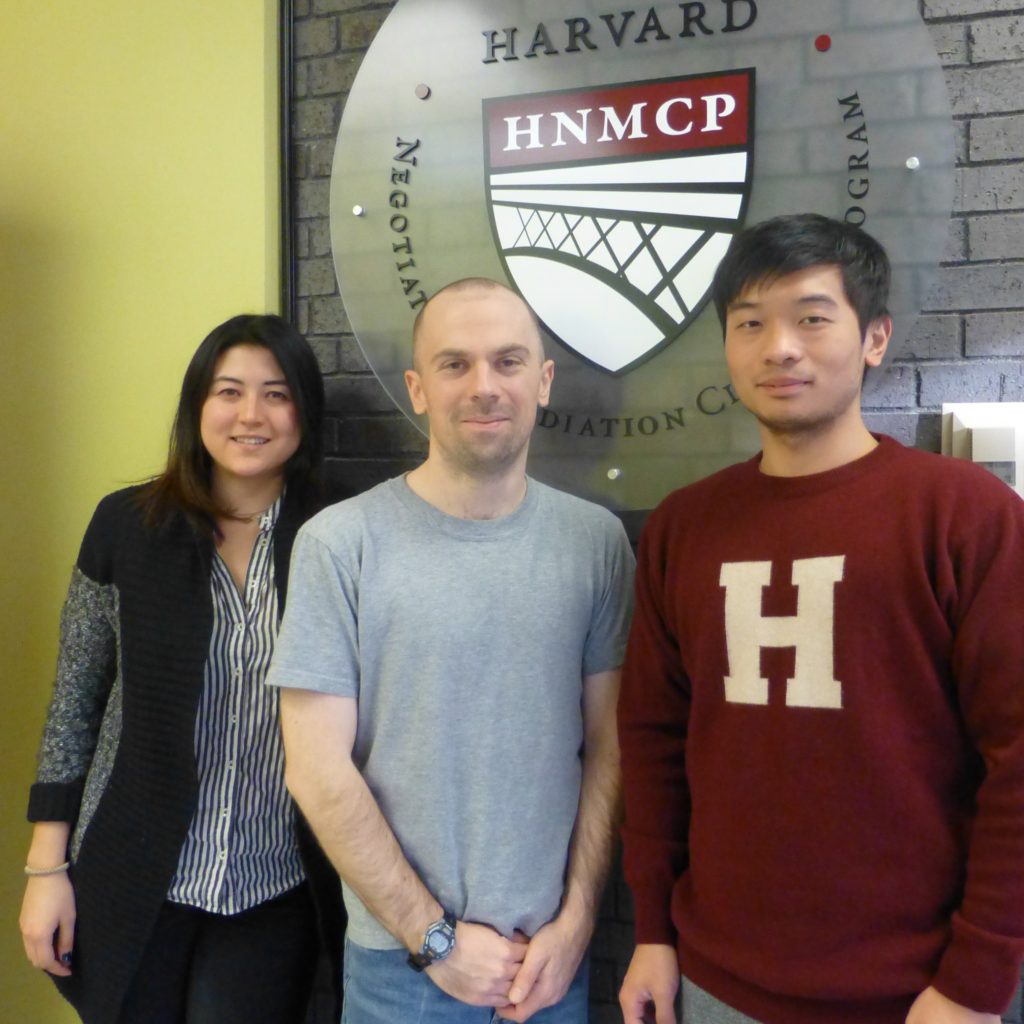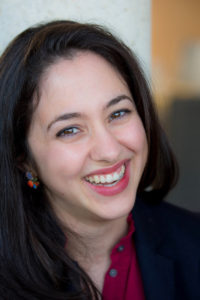 It might seem like a long way from her birth in Cuba to the halls of Harvard Law School, but ever since she read Roger Fisher’s Getting to Yes as a sophomore in college, Patricia Alejandro ’17 had her sights set on law school, as well as Fisher’s legacy, as grown and cultivated by the dispute resolution community at HLS.
It might seem like a long way from her birth in Cuba to the halls of Harvard Law School, but ever since she read Roger Fisher’s Getting to Yes as a sophomore in college, Patricia Alejandro ’17 had her sights set on law school, as well as Fisher’s legacy, as grown and cultivated by the dispute resolution community at HLS.
At some moment when sitting in an HLSNow training with Prof. Bob Bordone, for the corps of dialogue facilitators he was forming, Alejandro says, “It really hit me that I had achieved what I set out to—I was doing something I loved, something I wanted to do. I love this work and I think a lot about how to take it into the world, build better institutions. How to be better with each other. How to be better in the world.”
We’re so pleased to feature Patricia Alejandro as our Student Spotlight this spring. Not only has she been a student twice in the Harvard Negotiation & Mediation Clinical Program (HNMCP), but she has also served as a Teaching Assistant in the Winter 2017 Negotiation Workshop and as a facilitator for HLSNow and at Alumni Reunion Weekend. She was a student in Bordone’s Advanced Negotiation: Multiparty Negotiation, Group Decision Making, and Teams course, as well as this year’s reading group Political Dialogue in Polarizing Times: Election 2016. She sub-cited for the Harvard Negotiation Law Review, mediated with the Harvard Mediation Program, and was part of the Harvard Law School Negotiators student group, working this spring on the Religious Communities Project. We sat down with Alejandro in a rare free hour right before exams.
HNMCP: You worked on two projects with us during your time at HLS—one with Thumbtack, a technology company dedicated to connecting local service professionals and customers, and the other with the Boston Office of Housing Stability (OHS). With Thumbtack you were tasked with assessing how the company should design and implement an innovative, tech-centered process for customers and professional to resolve disputes. For OHS your team assessed a diverse group of stakeholders in housing-related conflicts in order to make recommendations on the design of a dispute resolution program that can offer parties less expensive, more predictable, and more efficient options than the existing legal processes. What kinds of challenges have you faced in this dispute systems design work? What surprised you? What were the rewards?
Patricia Alejandro: In undergrad, I did a lot of work in international conflict and transitional justice. I came to understand that my real passion lay in the rebuilding part of that work. But in law school, you don’t talk much about how to rebuild societies. I felt disillusioned and wanted to step away. I wanted to explore doing something different to learn beyond what I was familiar with. So when I first came to the Clinic, I specifically chose the Thumbtack project to try something new, instead of, for example, the Mennonite Central Committee project in the Democratic Republic of Congo, which was also a project in the Clinic that semester.
The challenges were the rewards. The project with Thumbtack was steeped in technology, a piece of our lives that is growing and growing and will only continue to do so. None of us had any exposure to that world so it was a huge learning curve and I learned many valuable ways to think. I discovered how much I like thinking about the systems design aspect of the project. I loved talking with all the different stakeholders, finding out how some things work and why. I also wanted exposure to working with a corporate client to see if that was a space I could also work in. And at the end, I could see the project had more impact than I was anticipating. I finished the project knowing that my system was going to impact not only the company, but also the end users—the customers and small contractors and business owners. That it was going to reduce stress and anger in people’s lives.
The project with the Office of Housing Stability (OHS), which I signed on for a year later, was again a case of wanting to do something completely different while getting more exposure to systems design. One project really isn’t enough to learn something that big! Also, I wanted to do a local project. I had done the Transactional Law Clinic’s Community Enterprise Project in Jamaica Plain (a neighborhood in Boston) and loved working in the community. I’d met the OHS client through some work I’d done there and wanted to work with her again. And having spoken to so many of my friends doing housing work over the past years, I had substantial questions around housing stability.
HNMCP: Sounds like that project hit a number of sweet spots for you.
PA: Totally! Another sweet spot was my team. I am really grateful for having had two terrific teams on my projects. We really cared about each other as people and could pick up each other’s slack, cover each other’s weak spots. It made a huge difference. And we could support each other through our doubts, you know, when you worry that you aren’t actually going to add any value to your client.
HNMCP: Say more about that concern.
PA: Well, when clients come to HNMCP it’s because nobody’s figured out their problem yet. That’s why they’ve called us. Sometimes we’re the first one tackling a problem, the first attempt. Will we make a difference? In the case of the OHS project, many of the stakeholders are poor or elderly or don’t speak English, which is very important to me. They have the least power. The least voice. Will our project help over the long run? There’s so much potential. If we do it right for OHS, could our system be replicable in other cities?
I really want everyone at HLS working with clients, especially on cases that may include negotiation and settlements, to learn negotiation. Many students often don’t think they have time to take the Negotiation Workshop but it would actually save them so much time and benefit their clients and their own lives.
HNMCP: What did you learn about yourself in the Clinic?
PA: Ha! How flawed I am. How imperfect. How little I know. How hyper self-aware I can be in limiting ways. It’s humbling. But the frameworks that we learn in the Workshop and Clinic are really helpful—I’m thinking about the framework of the difference between intentions and impact, for example. I’ve learned a lot about my own tendencies when confronted by conflict. I listen better and I’ve learned how hard it is to listen well. And I also learned how much I love teaching. Teaching runs throughout my family and I’ve always been curious about it. Now I know how much of me it is.
HNMCP: What’s an example of when you’ve used a skill you learned from your negotiation training in your own life?
PA: Opting to volunteer to facilitate in a moment when there was a lot of tension in the room. I knew in that moment that I had the skills to set up a process for the group and that I wasn’t, myself, attached to the outcome of the conflict, so I had that neutrality. I was on a trip to Rome and the group had to decide who should get the one ticket we had to see the Pope up close. So I volunteered to try to manage the process by which we would decide how to decide, and then, using that process, decide who got the ticket. And I think as to these goals it was a success. Though the process was difficult and draining, we were able to maintain relationships and not hold grudges against each other. And maintaining relationship through conflict can be huge. It was the first time I threw myself into facilitation that wasn’t planned in advance and wasn’t among strangers but people I knew. I was able to provide structure and process instead of everyone just talking back and forth for hours. So I feel more capable now. I trust more that I’ll step up and use my skills.
HNMCP: How do you anticipate using the skills you gained at HLS in your career after graduation?
PA: Honestly, in every day and any work that I do. What I hope is to create work that I can do anywhere to help anyone, and I think ADR provides that. That’s part of growing up in Cuba and being an immigrant. My grandfather had books from everywhere; I felt like I learned from all over the world, even while on an island. I love being surrounded by people from different places and experiences. All the work I’ve done comes down to people for me, and so much of dispute resolution work is about people. I want to help people work and live better together, both through dispute design and teaching these skills to others.
I think you all work incredibly hard. My Clinical Instructor, Rachel Krol, puts in a lot of hours. I don’t know how she does it, but I really value that commitment. I want to give a huge shout out to Florrie [Darwin] and Alex [Civetta], who ran my working group in the Negotiation Workshop, as well as Rachel [Viscomi] and Bob [Bordone], who have taught, supervised, and mentored me more than once. It’s so clear that all of your really care about the students. This is not silly stuff, this work that is about emotions and personal conflict. We grapple with it in every moment of our lives. It’s important to everyone—it impacts our lives and the lives of others.

